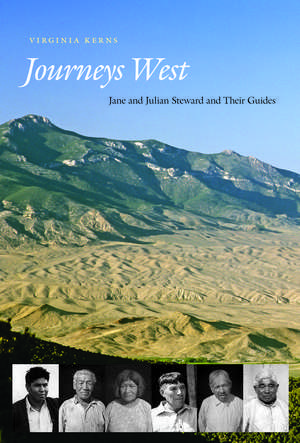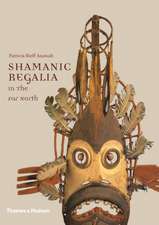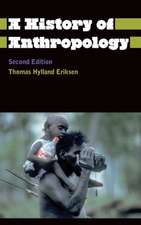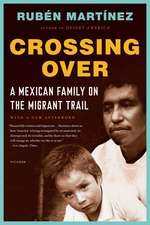Journeys West: Jane and Julian Steward and Their Guides
Autor Virginia Kernsen Limba Engleză Hardback – 28 feb 2010
Journeys West traces journeys made during seven months of fieldwork in 1935 and 1936 by Julian Steward, a young anthropologist, and his wife, Jane. Virginia Kerns identifies the scores of Native elders whom they met throughout the Western desert, men and women previously known in print only by initials and thus largely invisible as primary sources of Steward’s classic ethnography. Besides humanizing Steward’s cultural informants—revealing them as distinct individuals and also as first-generation survivors of an ecological crisis caused by American settlement of their lands—Kerns shows how the elders worked with Steward. Each helped to construct an ethnographic portrait of life in a particular place in the high desert of the Great Basin.
The elders’ memories of how they and their ancestors had lived by hunting and gathering—a sustainable way of life that endured for generations—richly illustrated what Steward termed cultural adaptation. It later became a key concept in anthropology and remains relevant today in an age of global environmental crisis.
Based on meticulous research, this book draws on an impressive array of evidence—from interviews and observations to census data, correspondence, and the field journals of the Stewards. Journeys West illuminates not only the elders who were Steward’s guides but also the practice of ethnographic fieldwork: a research method that is both a journey and a distinctive way of looking, listening, and learning.
Preț: 404.20 lei
Nou
Puncte Express: 606
Preț estimativ în valută:
77.34€ • 81.18$ • 64.20£
77.34€ • 81.18$ • 64.20£
Carte disponibilă
Livrare economică 20 martie-03 aprilie
Preluare comenzi: 021 569.72.76
Specificații
ISBN-13: 9780803225084
ISBN-10: 0803225083
Pagini: 444
Ilustrații: 27 photographs, 1 map
Dimensiuni: 152 x 229 x 15 mm
Greutate: 0.79 kg
Editura: Nebraska
Colecția University of Nebraska Press
Locul publicării:United States
ISBN-10: 0803225083
Pagini: 444
Ilustrații: 27 photographs, 1 map
Dimensiuni: 152 x 229 x 15 mm
Greutate: 0.79 kg
Editura: Nebraska
Colecția University of Nebraska Press
Locul publicării:United States
Notă biografică
Virginia Kerns is a professor of anthropology at the College of William and Mary. She is the author of Scenes from the High Desert: Julian Steward’s Life and Theory and Women and the Ancestors: Black Carib Kinship and Ritual.
Cuprins
Preface
Remembering
Part I: California, 1935
Chapter 1. Going There
Chapter 2. Shoshone Territory
Chapter 3. Valley of the Paiutes
Part II: Nevada, 1935
Chapter 4. Coyote's Country
Chapter 5. The People's Land
Chapter 6. River from Snow Mountain
Part III: Idaho and Utah, 1936
Chapter 7. Basin and Plateau
Chapter 8. Land of the Utes
Chapter 9. Trails West
Chapter 10. Trail's End
Afterword
Notes
Bibliography
Recenzii
"Interweaving colonist history with ecological changes and Indian efforts to survive, Kerns provides a road-trip story—an honest Bonnie and Clyde driving and driving the West—illuminating a crucial stage in an anthropological theorist's career."—A.B. Kehoe, CHOICE
"[Journeys West is] an excellent study of the man, his strategy, the people he encountered, and his Great Basin fieldwork."—Catherine S. Fowler, Current Anthropology
"Virginia Kerns has written an intelligent, beautifully detailed book that will appeal to anyone interested in the history of the Great Basin and the history of anthropological fieldwork. Her style is clear and meticulously researched, and I highly recommend this book."—Patricia Dean, Idaho Yesterdays
"This well-written, engaging narrative puts a "human face" on Steward's ice enthusiasm in pursuing a theory."—Richard O. Clemmer, Journal of Anthropological Research
"This is a book easily read. It is well written, with some lovely, even poetic passages attractive to a wide readership. . . . I heartily recommend the volume to scholars interested in Steward's research methods."—Joel C. Janetski, Western Historical Quarterly
"Students and professionals alike will benefit from reading Kerns's Journeys West. It offers an opportunity to learn about the trials and tribulations of early scholars "in the field" while simultaneously reflecting on our own roles as anthropologists and historians."—Susan Hall, H-Net














